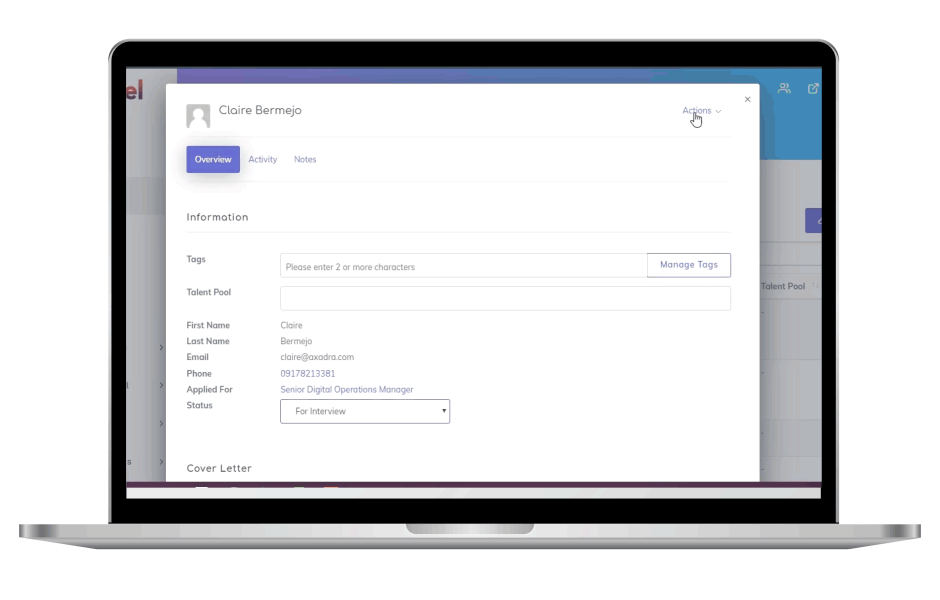In today’s competitive job market, hiring the right talent is more critical than ever for organizational success. Traditional hiring practices often prioritize cultural fit over skills, potentially leading to missed opportunities and limited diversity within teams.
Enter skills-based hiring, a strategic approach that places emphasis on candidates’ abilities and competencies rather than solely on their fit with company culture. In this article, we’ll delve into what skills-based hiring is, its myriad benefits, and practical strategies for implementation.
What is Skills-Based Hiring?
Skills-based hiring is a recruitment approach that prioritizes candidates’ skills, competencies, and relevant experiences over other factors such as educational background or cultural fit. Rather than focusing solely on a candidate’s resume or pedigree, this method assesses individuals based on their ability to perform specific job-related tasks and contribute to organizational success.
When discussing the difference between culture-fit and skill-based hiring, it’s essential to clarify that cultural fit is still an important factor. However, skills-based recruitment shifts the focus toward identifying candidates who possess the requisite skills and capabilities to excel in their role. Unlike culture-fit hiring, which may inadvertently exclude qualified candidates who don’t align with organizational norms, skills-based hiring aims to cast a wider net and attract diverse talent based on their demonstrated abilities.
Benefits of Skills-Based Hiring
Better Employee Retention
By hiring candidates based on their skills and capabilities, organizations are more likely to place individuals in roles where they can thrive and make meaningful contributions. This alignment between job requirements and employee skills fosters job satisfaction and reduces turnover rates.
Faster Time-to-Hire
One of the advantages of skill-based hiring is that it streamlines the recruitment process by focusing on specific skill sets rather than vague qualifications or subjective criteria. This targeted approach enables organizations to identify and onboard suitable candidates more efficiently, reducing time-to-hire and minimizing disruptions to business operations.
Reduced Hiring Costs
Efficient hiring processes translate into cost savings for organizations. By minimizing the time and resources spent on sourcing, screening, and onboarding candidates, companies can achieve significant reductions in hiring-related expenses while maintaining quality and effectiveness.
Improved Workplace Diversity
Skills-based hiring promotes diversity and inclusion by prioritizing meritocracy over other considerations. By casting a wider net and evaluating candidates based on their abilities rather than superficial factors, organizations can create more inclusive work environments that harness the unique perspectives and talents of a diverse workforce.
Adaptability to the Changing Job Market
In today’s rapidly evolving job market, skills-based recruitment offers organizations the flexibility to adapt to changing skill requirements and emerging trends. By focusing on transferable skills and core competencies, companies can future-proof their workforce and remain competitive in dynamic industries.
Better Candidate Quality
By selecting candidates based on their demonstrated skills and capabilities, organizations are more likely to attract high-quality talent who possess the necessary qualifications to excel in their roles. This results in improved performance, productivity, and overall effectiveness within the organization.
Broader Talent Pool
Skills-based hiring opens doors to a broader talent pool, allowing organizations to explore untapped talent pools and unconventional sources of expertise. Eliminating arbitrary barriers to entry and focusing on measurable skills allows companies to access a diverse array of candidates with varying backgrounds and experiences.
Implementing Skills-Based Hiring
Find suitable candidates for your organization by switching your focus to skills and competencies rather than solely on job requirements. Here are the steps you need to follow:
List Desirable Candidate Qualifications
Start by identifying the specific skills, competencies, and qualifications required for each role within your organization. Create a comprehensive list of desired qualifications that align with the job’s responsibilities and objectives.
Update Job Descriptions
Craft clear and concise job descriptions that highlight the key skills and competencies sought in potential candidates. Avoid using jargon or overly generic language and instead focus on outlining specific job requirements and expectations.
Use Additional Sourcing Channels
Expand your recruitment efforts beyond traditional channels by leveraging additional sourcing channels such as online job boards, professional networking sites, and industry-specific forums. Engage with passive candidates and tap into niche talent communities to identify qualified individuals who may not be actively seeking employment.
Refine the Candidate Screening Process
Develop a structured screening process that allows you to objectively evaluate candidates based on their skills and qualifications. Utilize screening tools, candidate tracking systems, assessments, and standardized criteria to assess candidates’ abilities and compatibility with the role.
Develop a Structured Interview Process
Design interview questions that directly assess candidates’ skills, experiences, and problem-solving abilities. Conduct structured interviews that focus on specific competencies and scenarios relevant to the role, allowing you to gain deeper insights into candidates’ capabilities. Using interview scheduling software can also help streamline this process and ensure a pleasant experience for everyone involved.
Conduct Skill-Based Testing
Integrate skill-based testing into the hiring process to assess candidates’ proficiency in key areas relevant to the role. This may include technical assessments, case studies, or practical exercises designed to evaluate candidates’ abilities in real-world scenarios.
Start Hiring Skilled Candidates for Your Company
Skills-based hiring offers a strategic approach to talent acquisition that prioritizes meritocracy, diversity, and efficiency. By focusing on candidates’ skills and competencies, organizations can build high-performing teams that drive innovation, productivity, and success.













